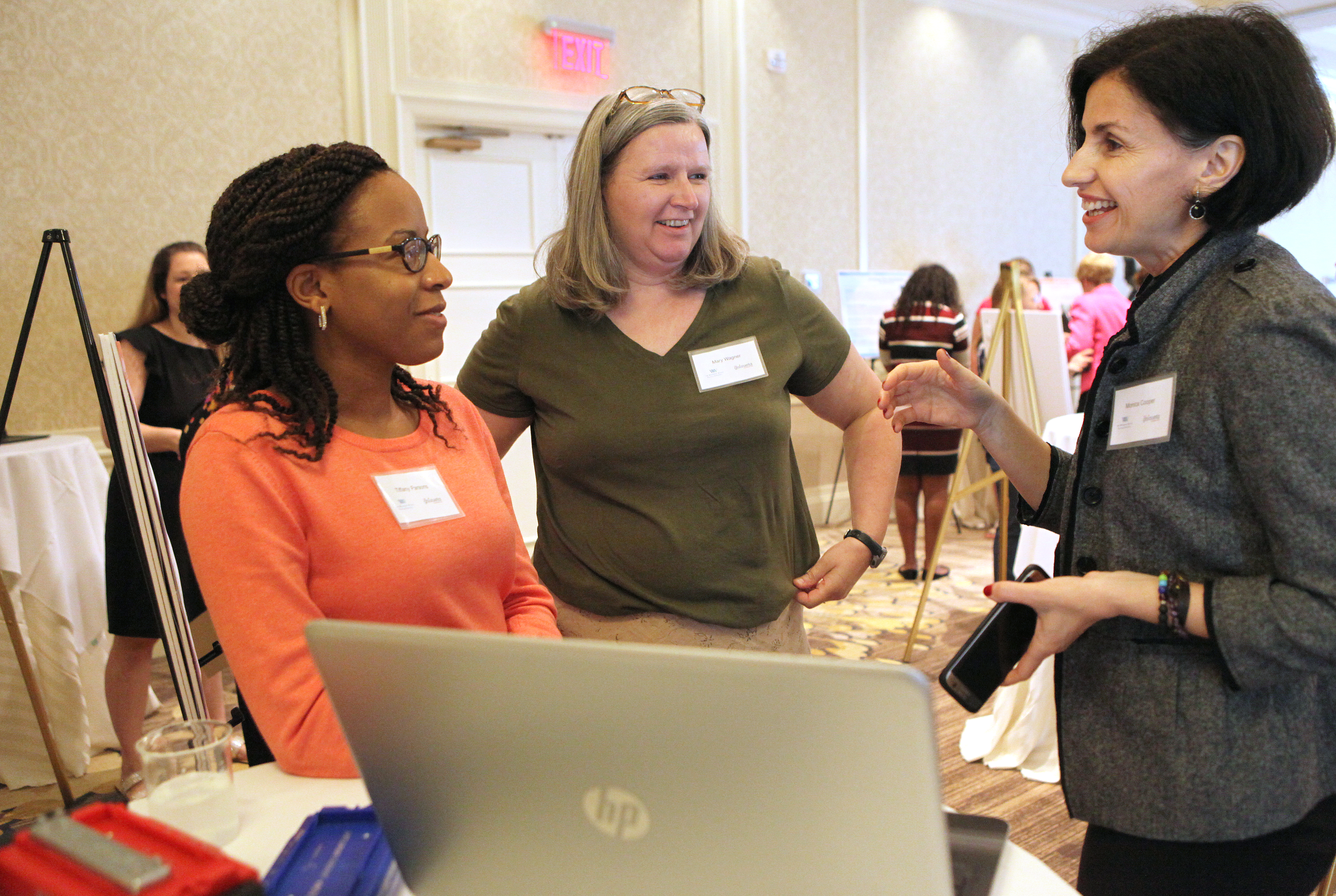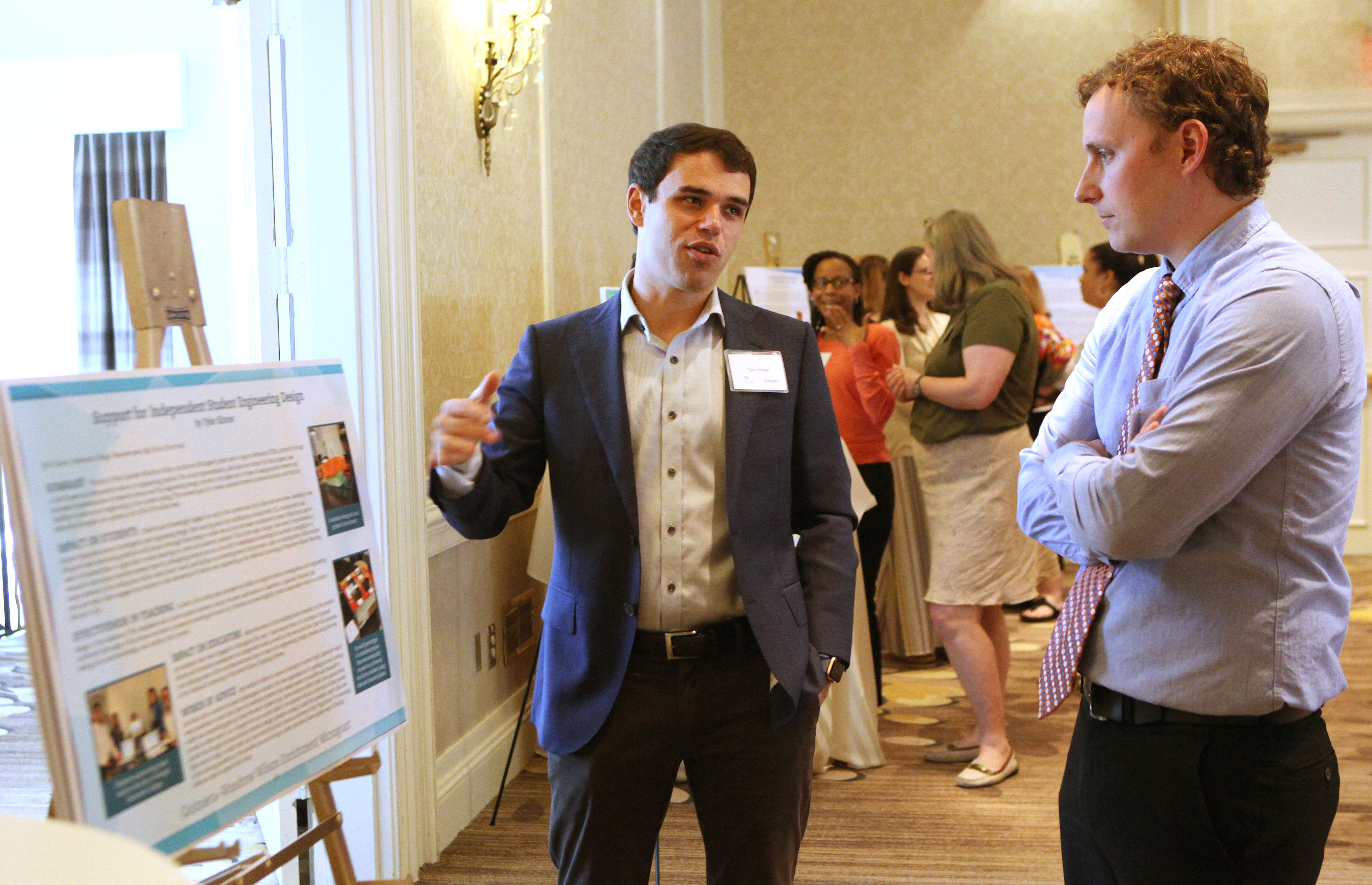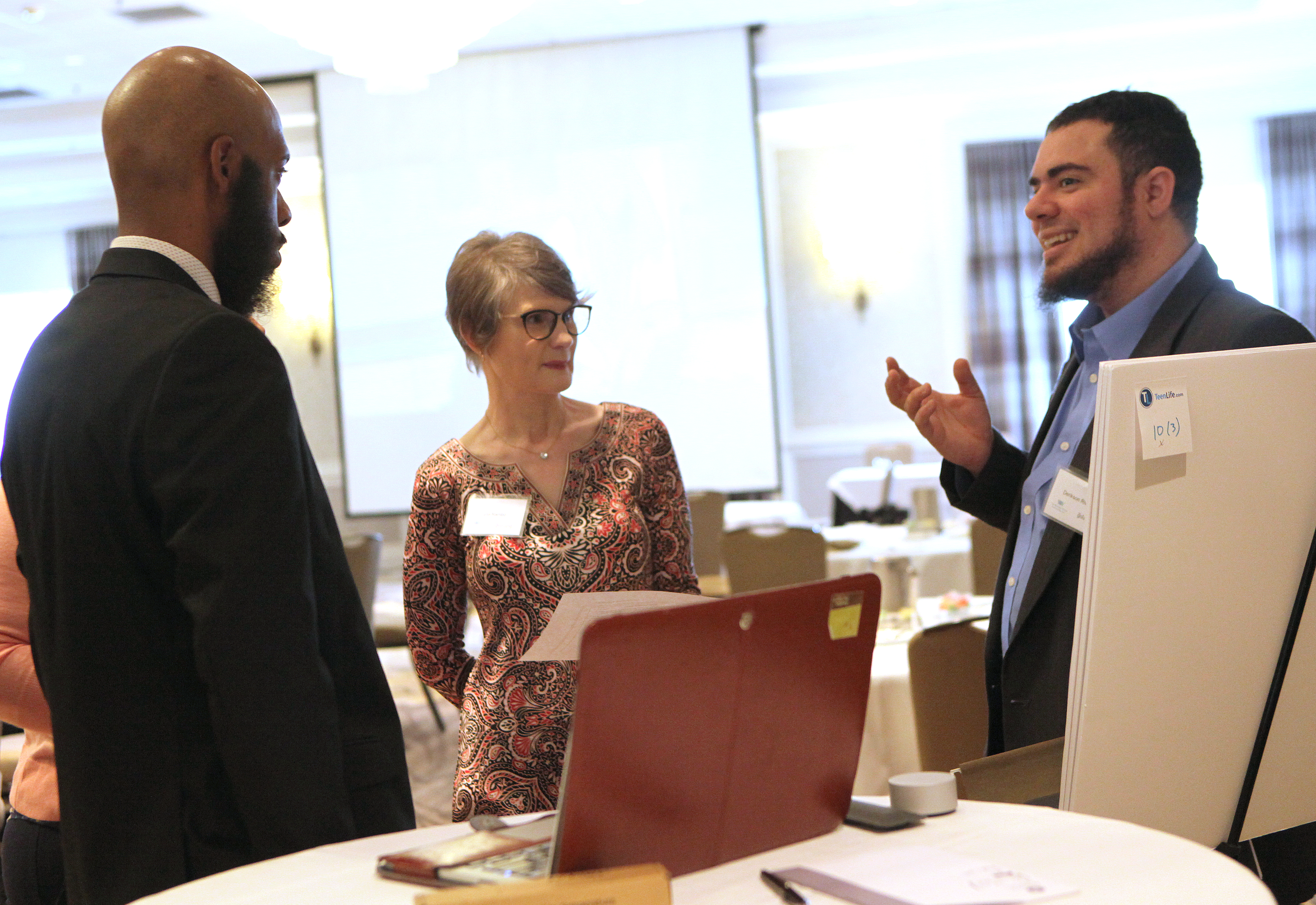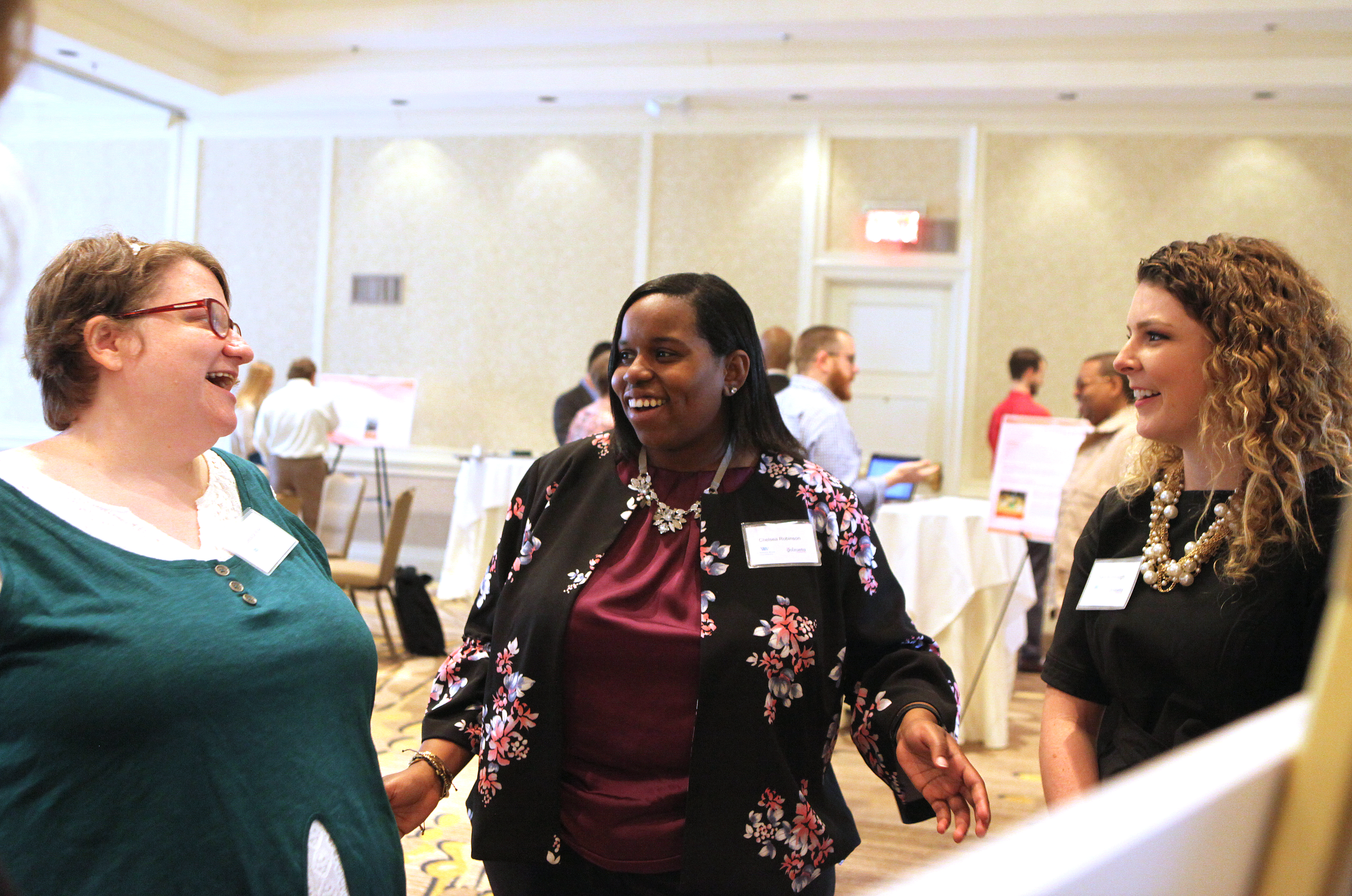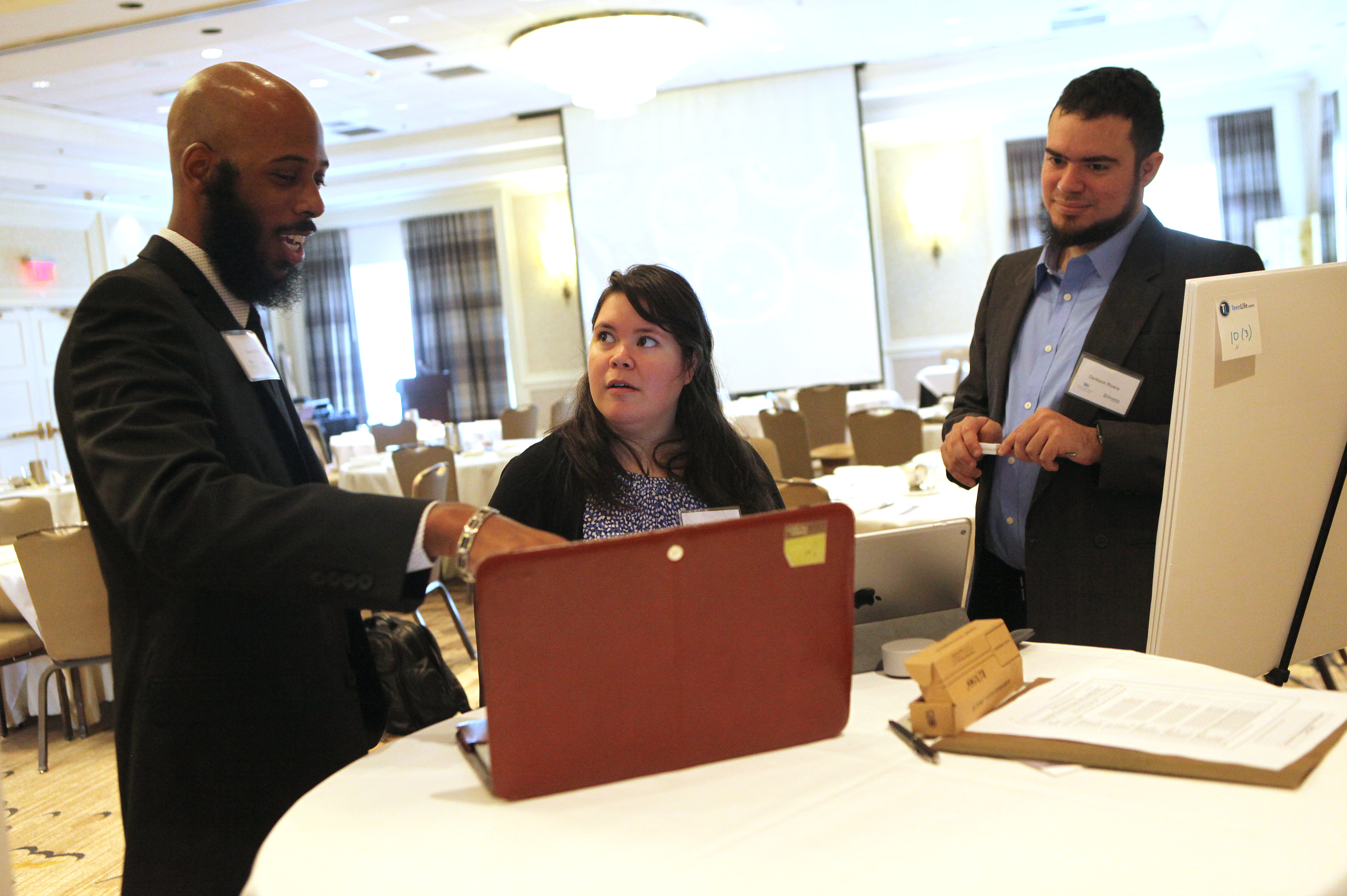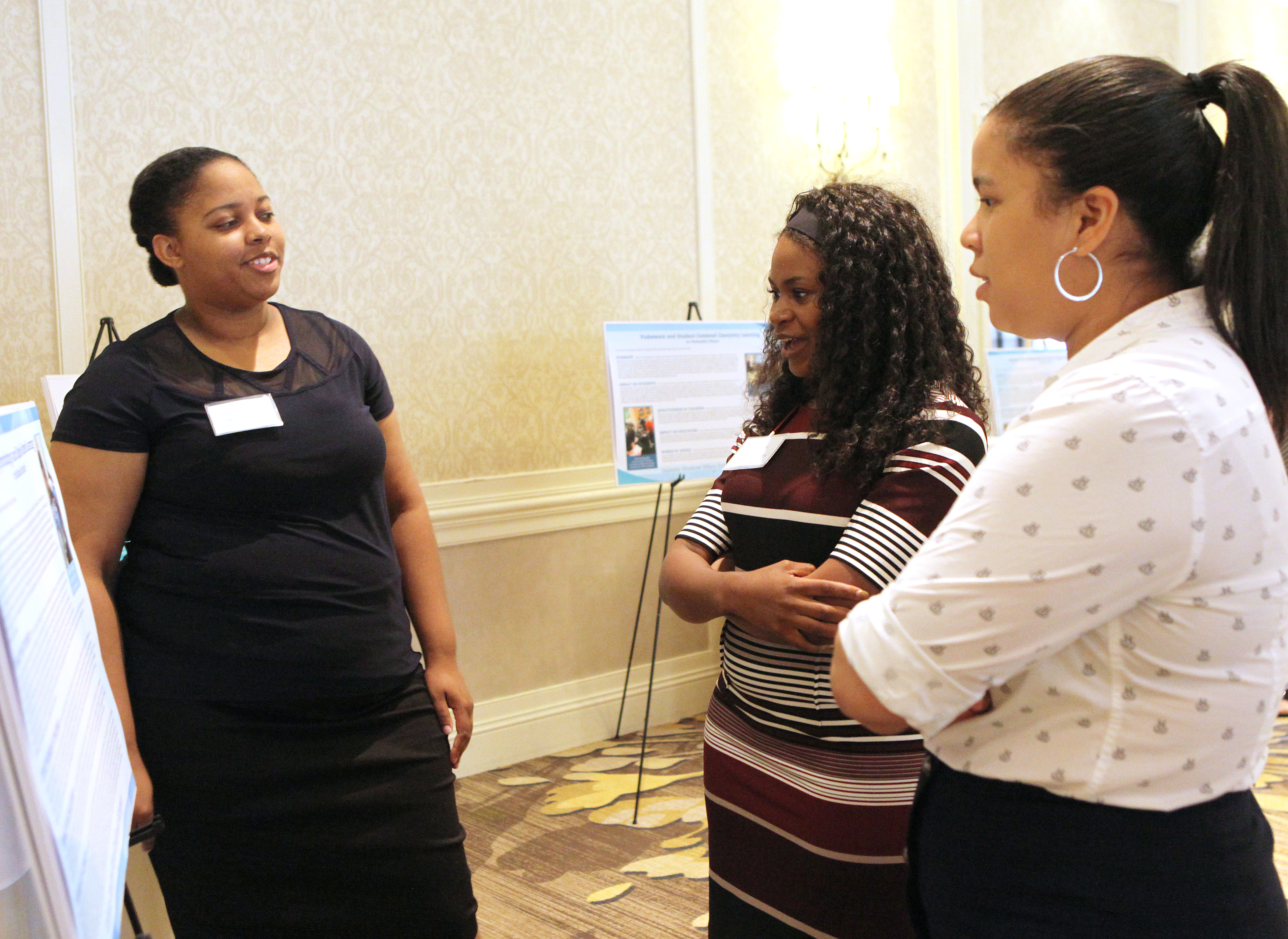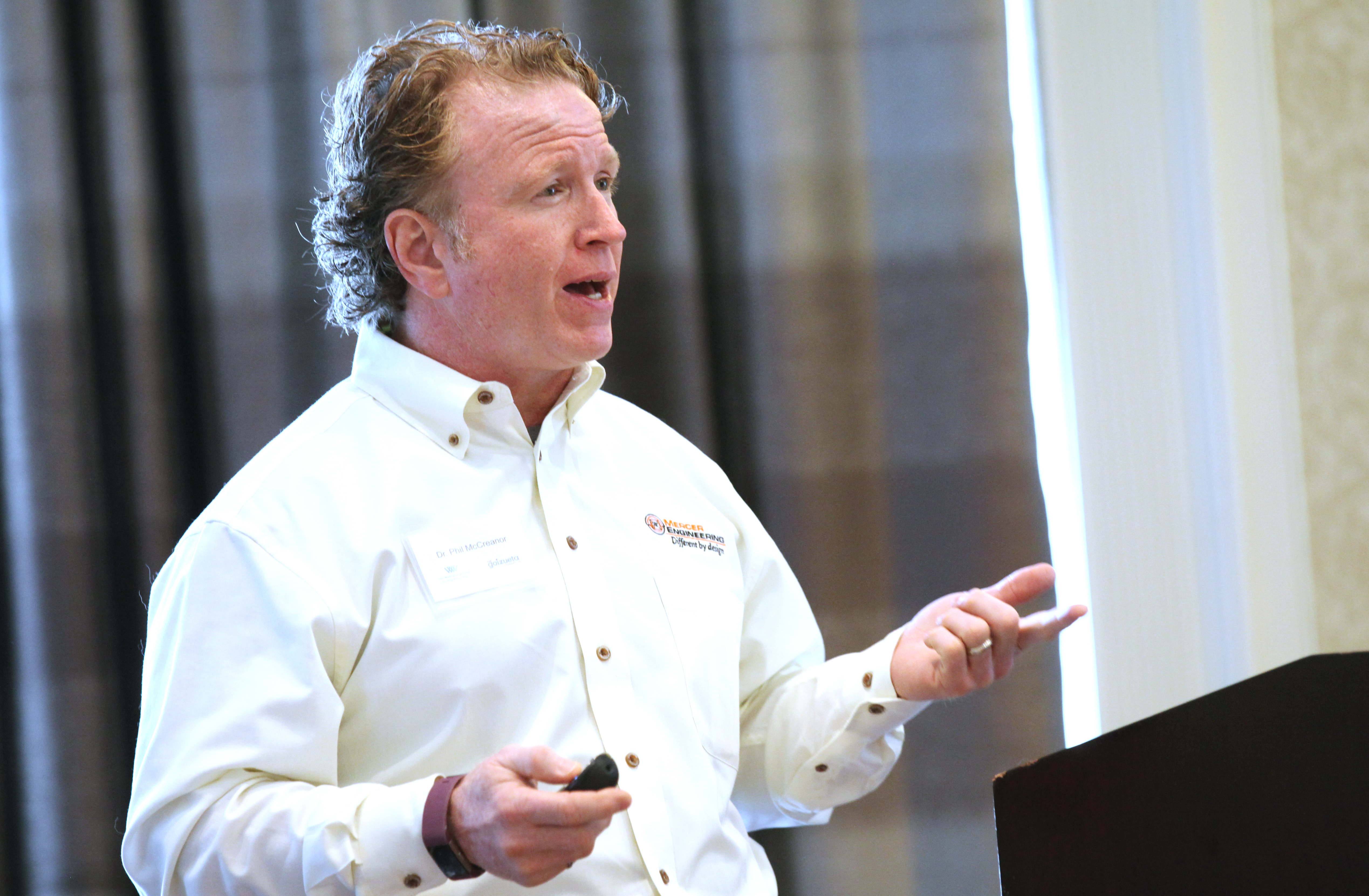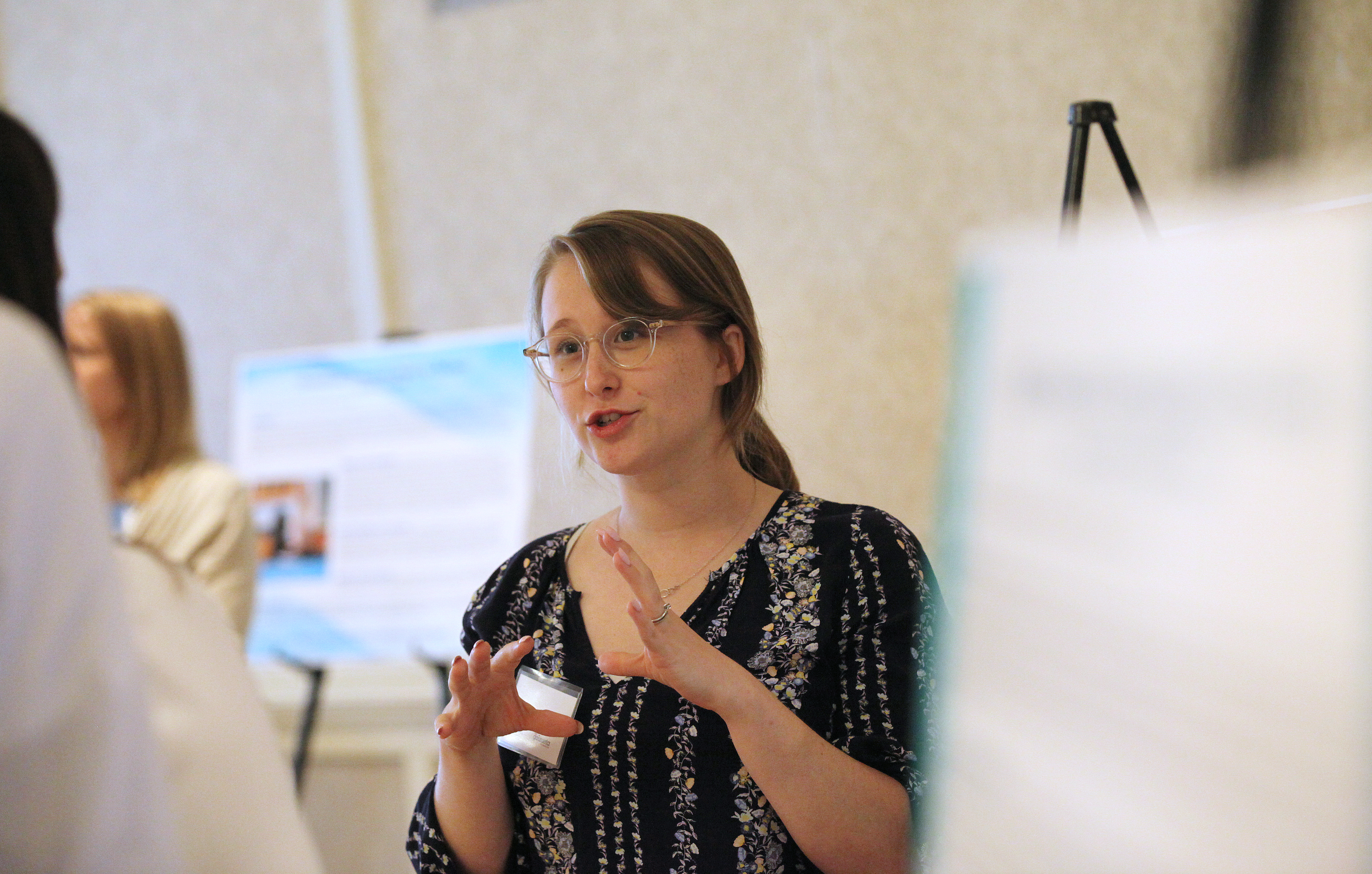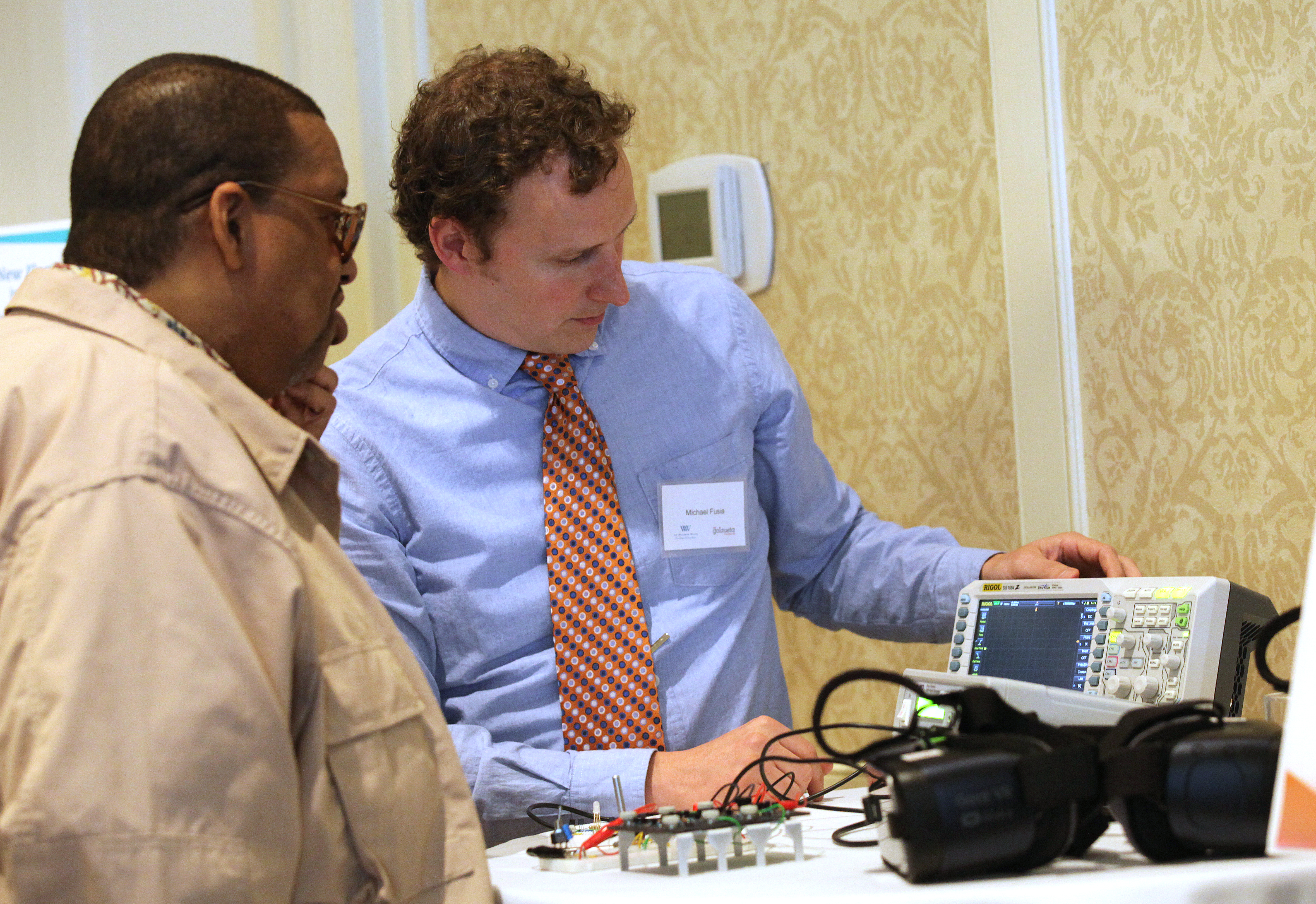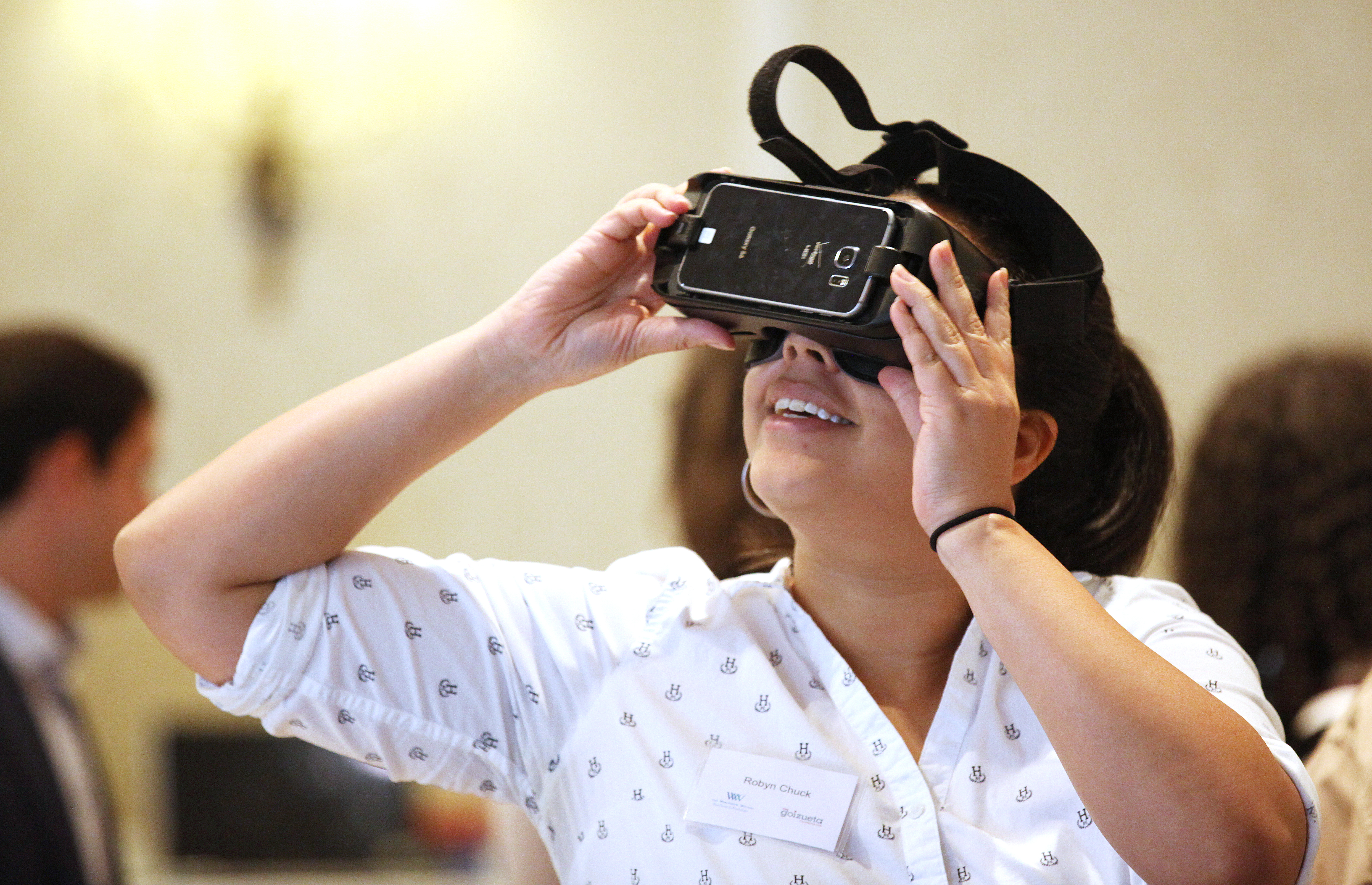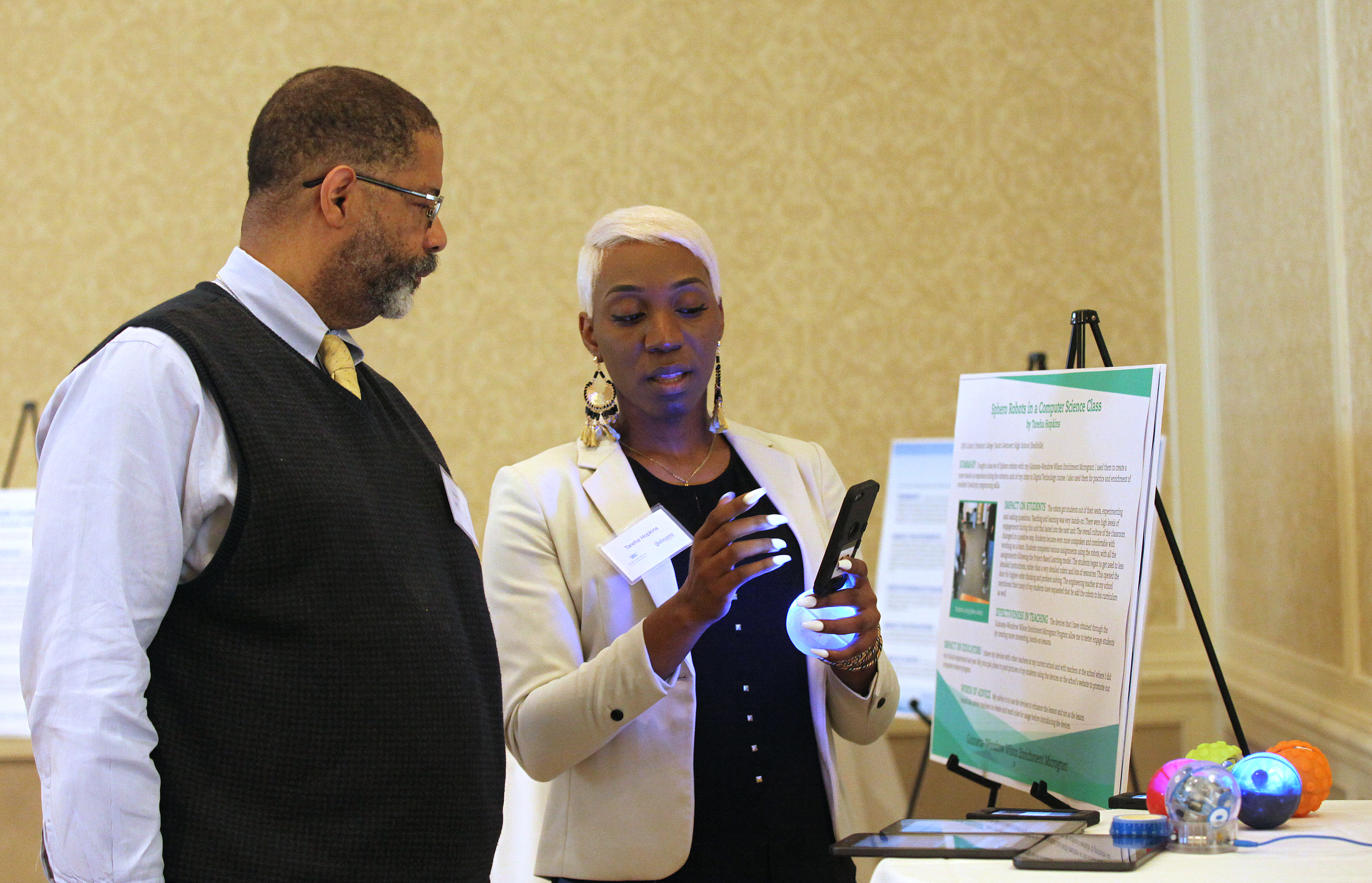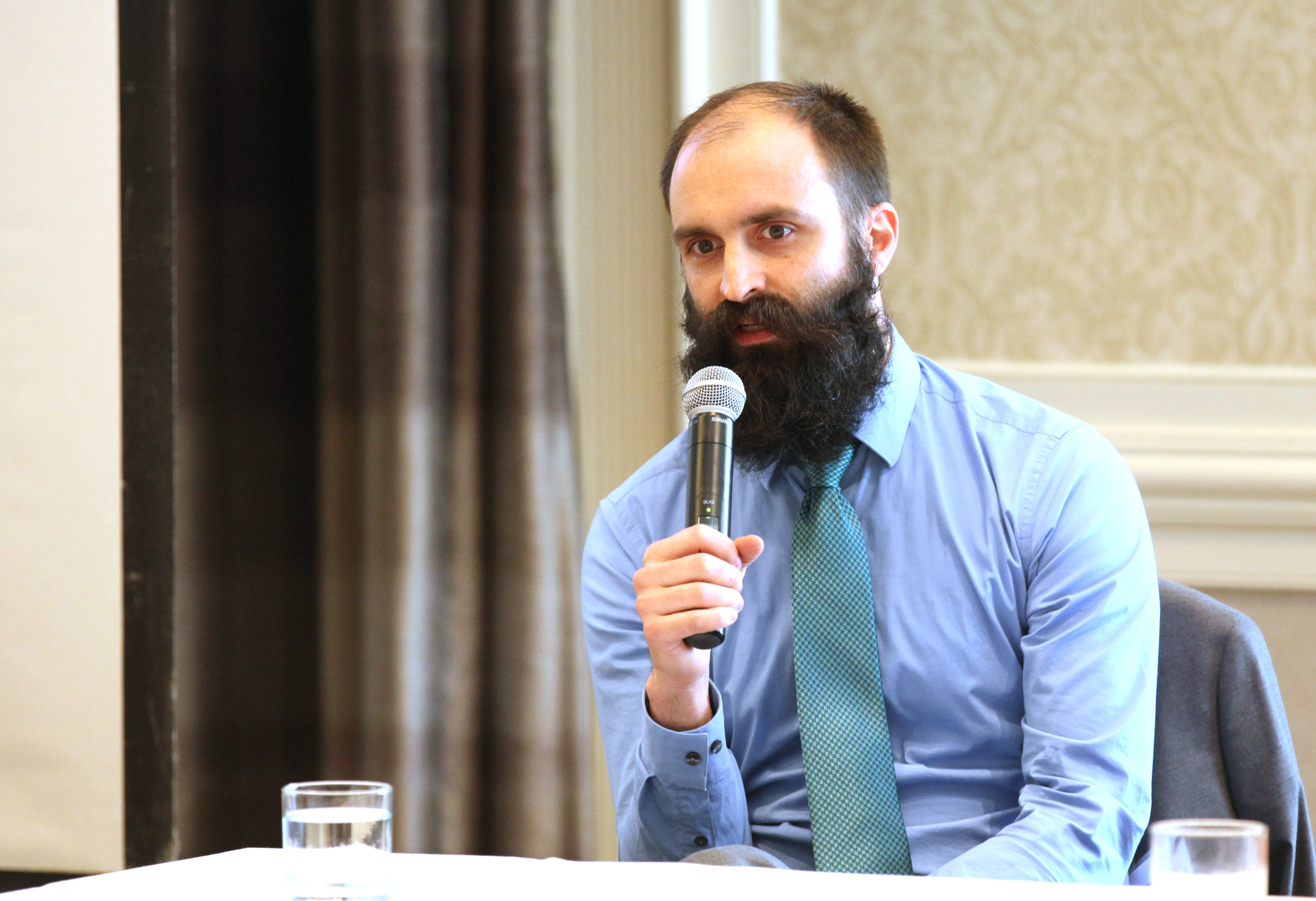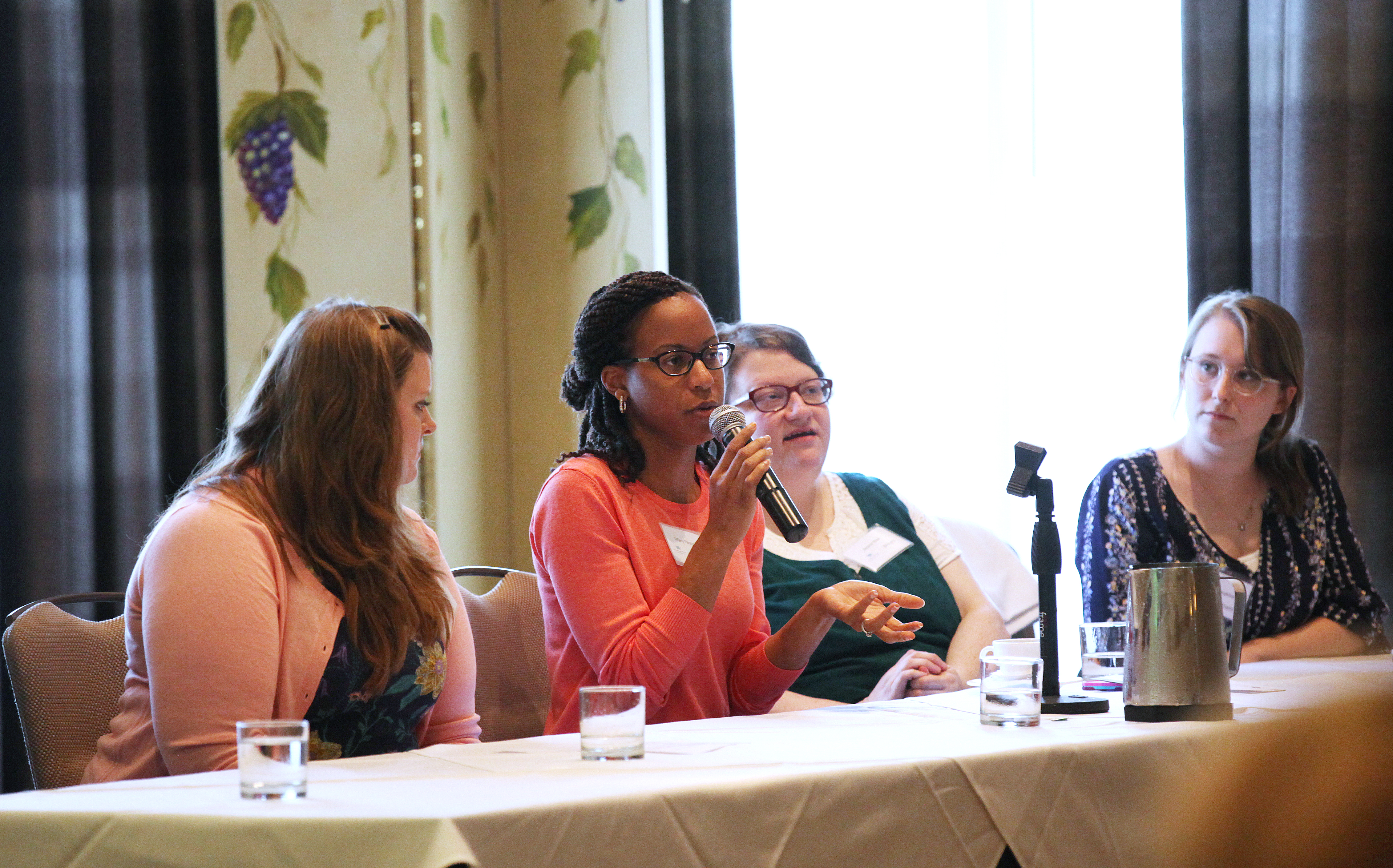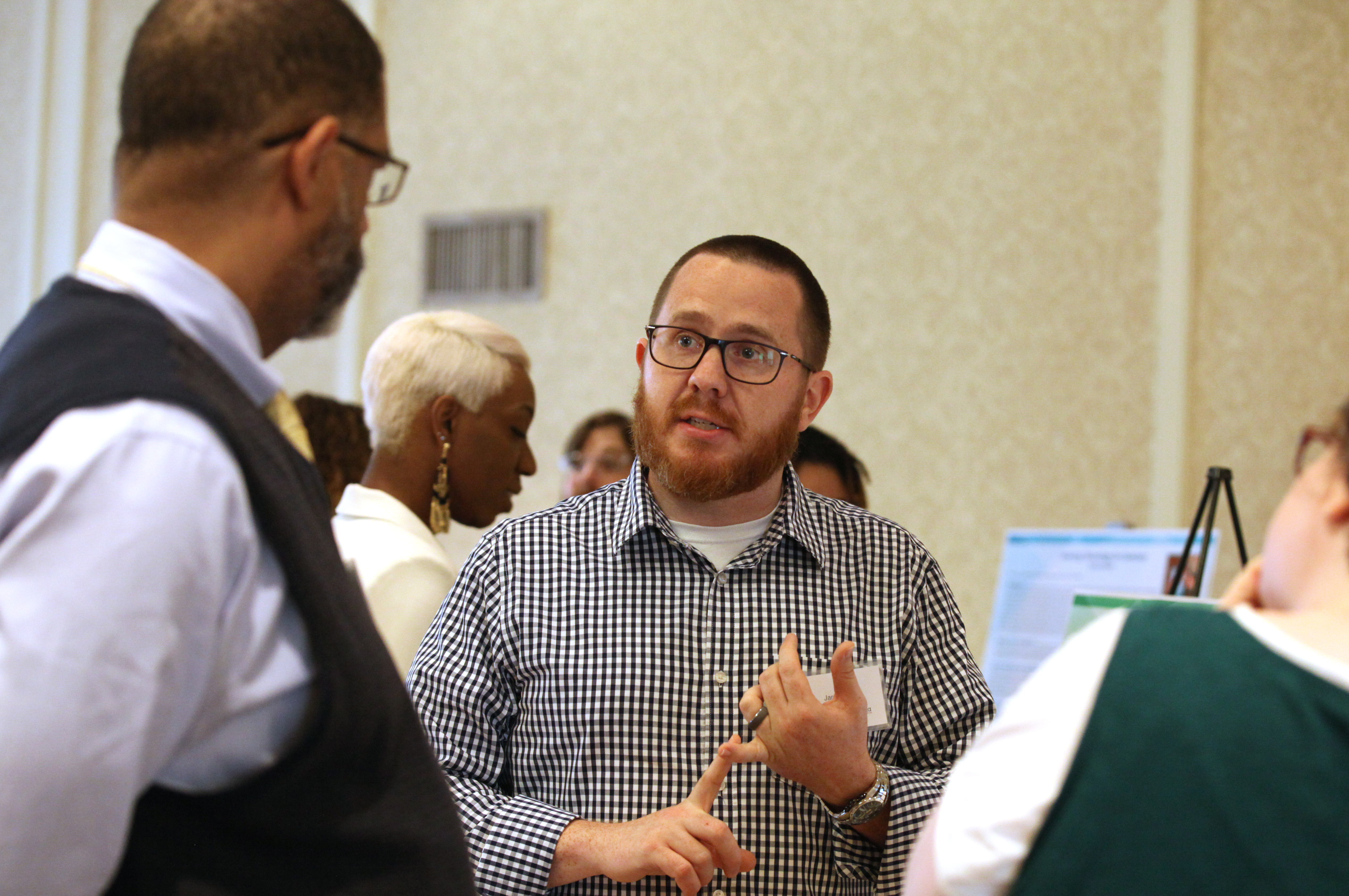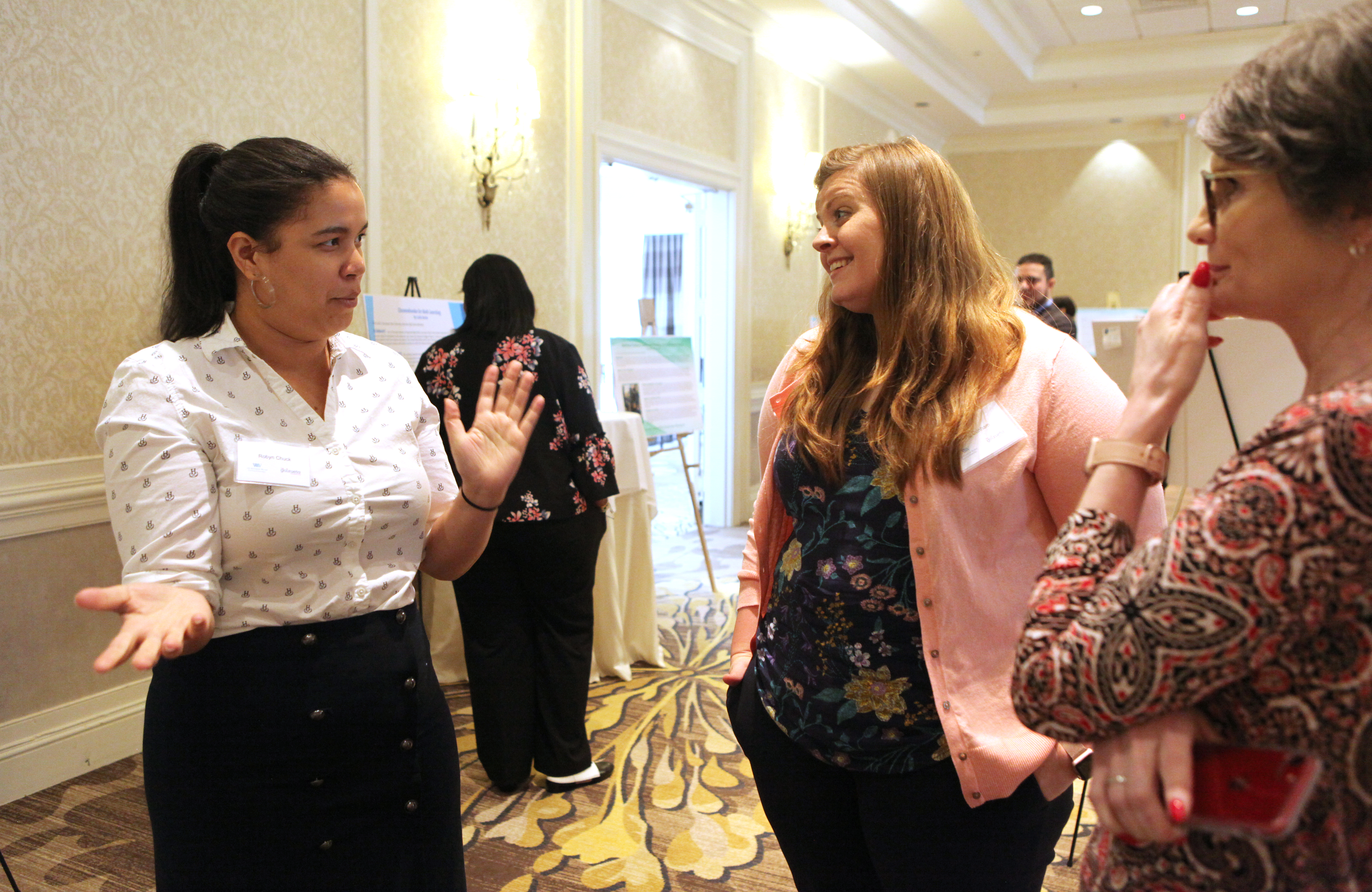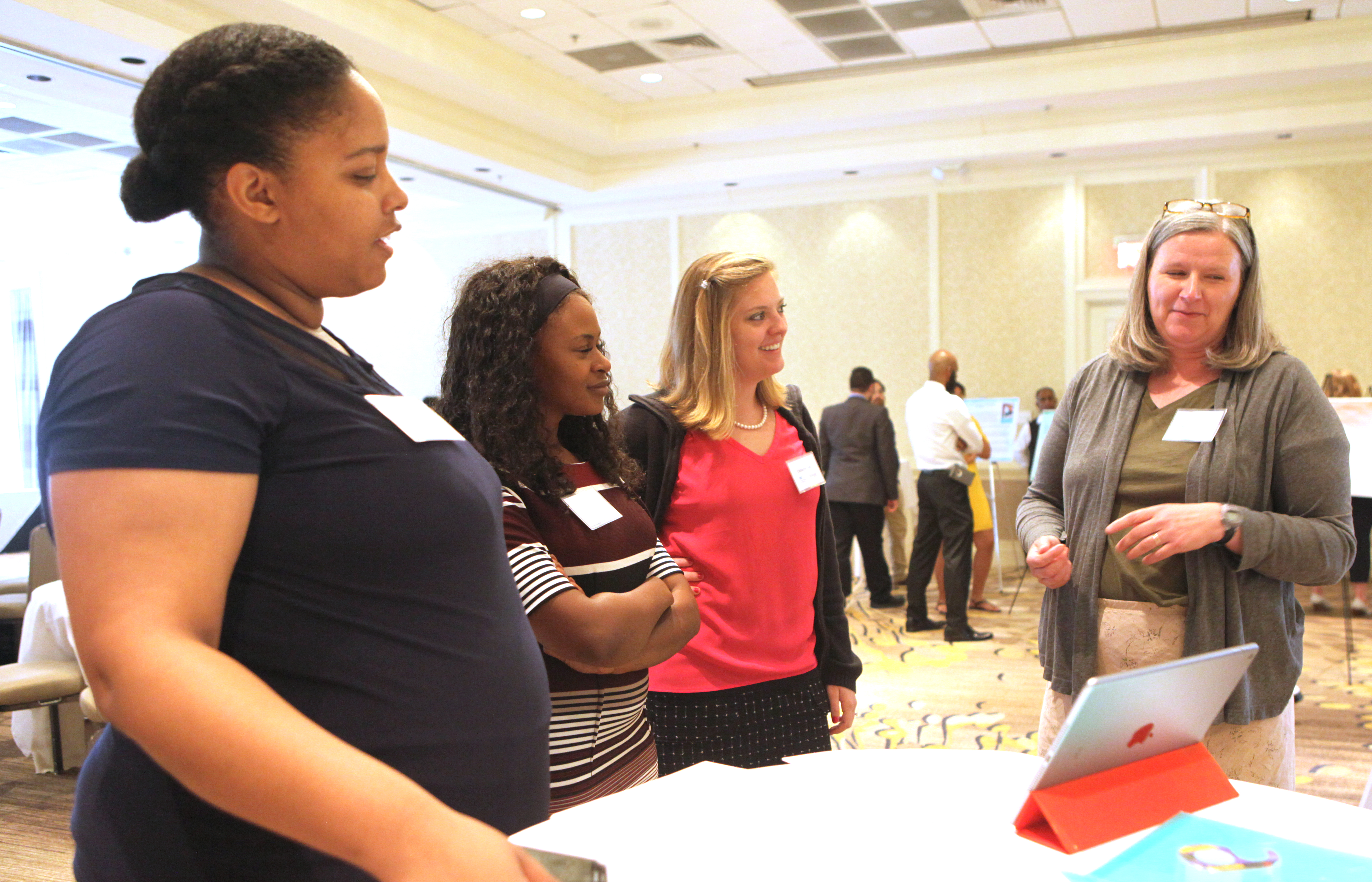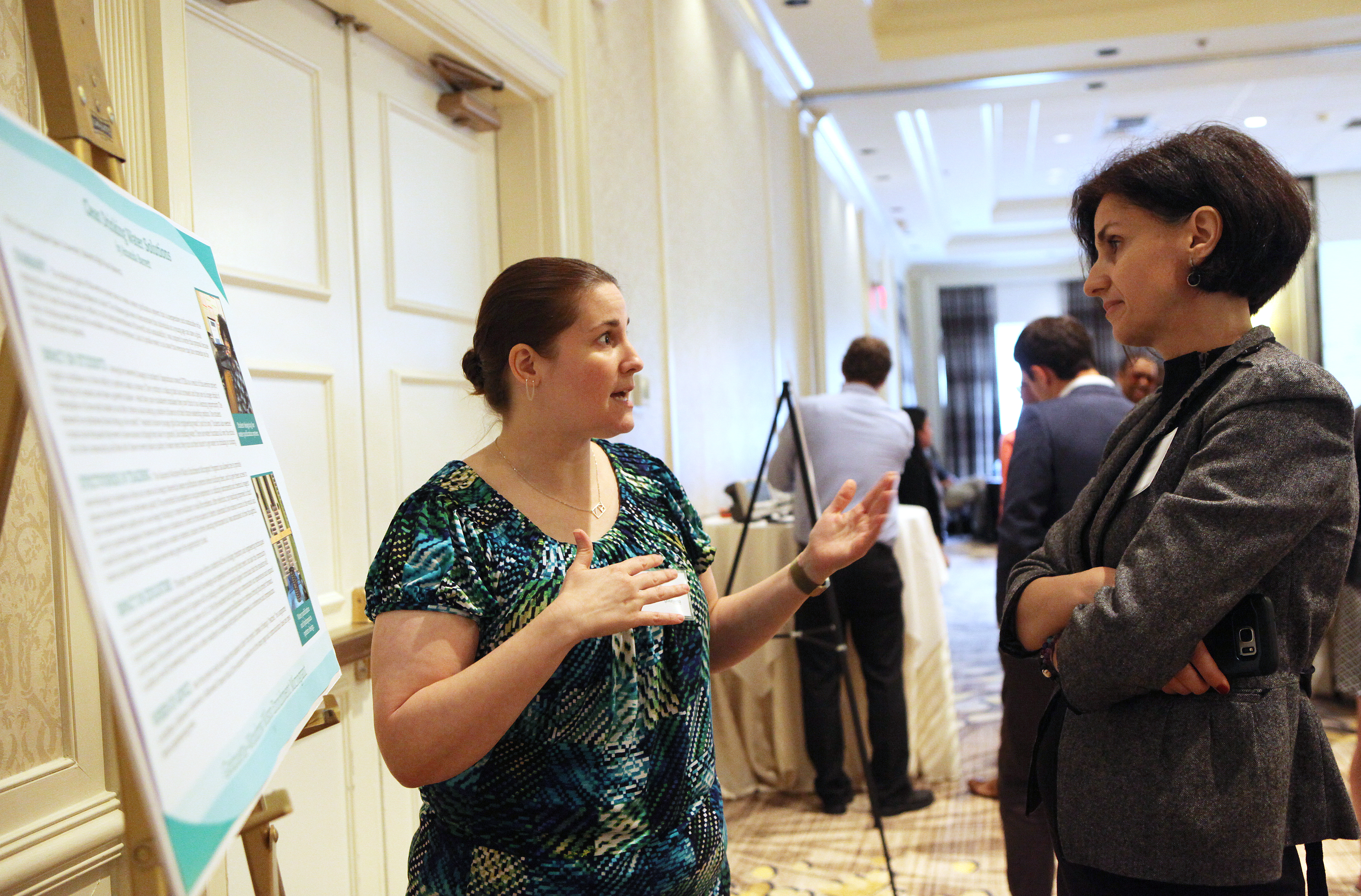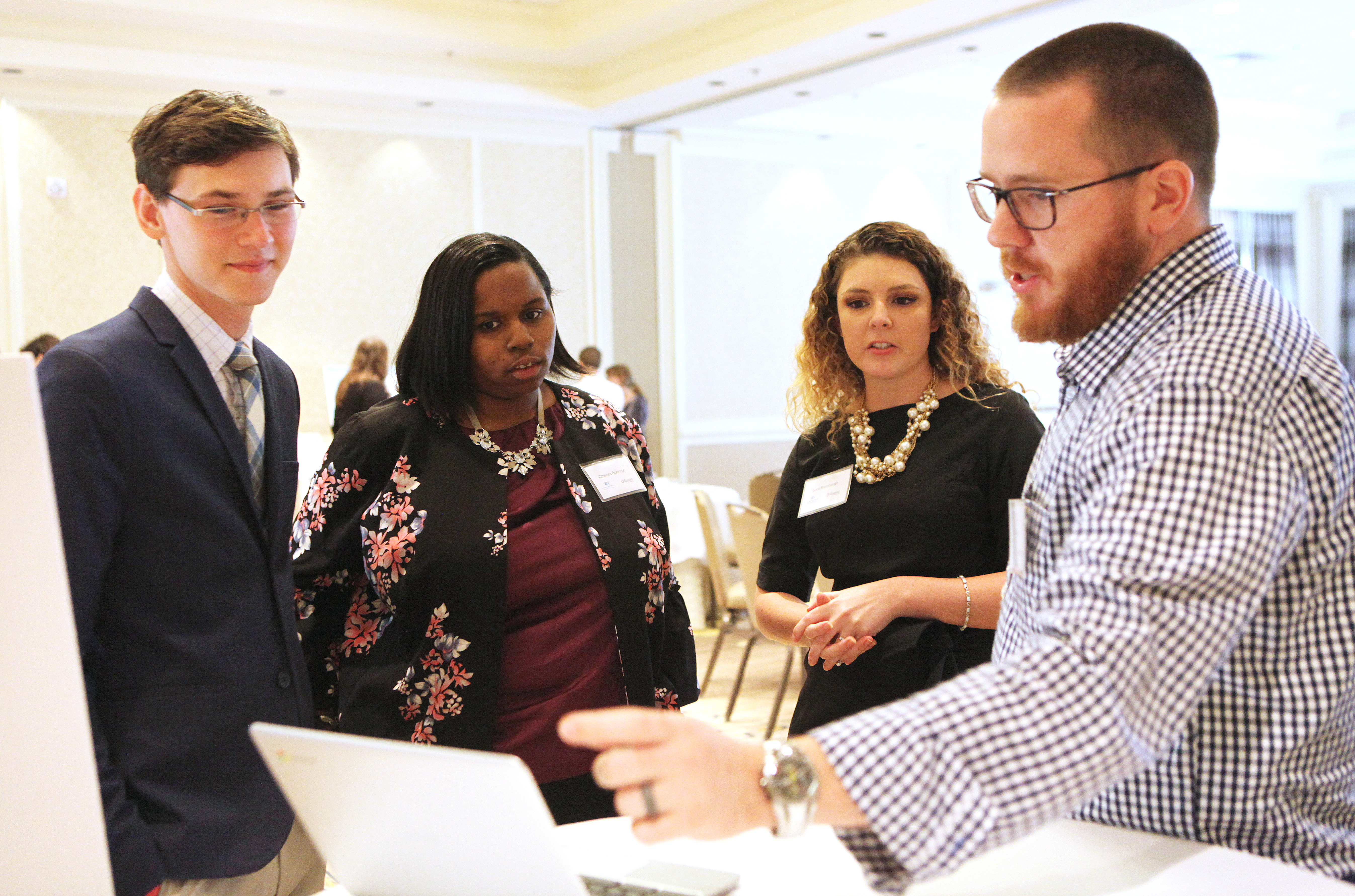News Feed (do not erase)
This is used for the microsite news feed. Do not delete.
Mentoring a WW Teaching Fellow in Philadelphia
While enrolled in their master’s program, WW Teaching Fellows work alongside a mentor teacher for the entire school year. Mentor teachers are an integral part of the WW Teaching Fellowship experience—they share their teaching knowledge while simultaneously supporting Fellows’ growth.
We spoke with Lindsay Stegena, a math teacher in the School District of Philadelphia (SDP) who is currently mentoring a 2020 WW Teaching Fellow. She offers insight into how she is working with her WW Teaching Fellowship mentee, what he’s adding to the classroom, why SDP is a good district for novice teachers to start their teaching career, what remote teaching looks like in the COVID-19 pandemic, and more.
WW Teaching Fellowship: In what ways do you support and mentor the Fellow assigned to your classroom?
Ms. Stegena: I share resources, past experiences, teaching strategies, and problems I’ve had and how I’ve resolved them. I share information about the district expectations and model parent/guardian contact. I also provide feedback on lessons.
WW Teaching Fellowship: What do WW Teaching Fellows bring to the classroom?
Ms. Stegena: My mentee is extremely patient when guiding students through mathematical content that they do not understand. He teaches in a way that the students understand the mathematical concepts, why they work the way they do, and how they are connected to one another rather than just the steps and facts. He puts a lot of time and effort into his lessons every day, and not just when he is being observed. His excitement and drive coupled with his ideas and the new strategies he learns in his master’s program make him a great addition to the classroom.
WW Teaching Fellowship: Can you share any successes that you feel you have achieved in your work with your mentee? If so, can you also describe a moment that made you realize he might make a great teacher?
Ms. Stegena: At times, talking to a class full of students on mute is like shouting into a black hole. He has encouraged many students to unmute and share their thinking when they otherwise would not have. My students have already shown a great deal of growth and truly care about learning with my mentee and me. I believe he will help our students grow in ways that are not just academic. He is a great role model for how to be a positive member of the learning community.
WW Teaching Fellowship: How has the pandemic affected your classroom and the role of the Fellow you mentor?
Ms. Stegena: Student-to-student and student-to-teacher discourse is a challenge, so collaboration and social interaction have been impacted. Not being able to meet in person has hindered our ability to collaborate with other teachers more often. It would have been nice to have the Fellow in my class become more of a part of a community of educators. Classroom management has not been an issue at all, but it is one thing that I wish I could have provided feedback on and modeled in the classroom.
WW Teaching Fellowship: Why is the School District of Philadelphia (SDP) a good place for a novice teacher to begin their teaching career?
Ms. Stegena: Experiences with a diverse group of learners build a teacher. SDP’s diversity allows for a plethora of learning opportunities for a novice teacher. SDP is also extremely welcoming to new educators and there is always support within the community of teachers they will work alongside.
WW Teaching Fellowship: What are some challenges future Fellows should expect in SDP? How are you preparing your Fellow to navigate those challenges?
Ms. Stegena: Sometimes students’ motivation can be low. In addition to helping navigate these challenges with engaging lessons, I support my mentee in creating connections with our students. Building connections is the first step in getting students to want to learn from you.
Q&A with Amit Schwalb, School District of Philadelphia mentor
While enrolled in their master’s program, WW Teaching Fellows work alongside a mentor teacher for the entire school year. Mentor teachers are an integral part of the WW Teaching Fellowship experience—they share their teaching knowledge while simultaneously supporting Fellows’ growth.
We spoke with Amit Schwalb, a biology and math teacher in the School District of Philadelphia (SDP) who is currently mentoring a 2020 WW Teaching Fellow. He offers insight into how he is working with his WW Teaching Fellowship mentee, what that Fellow is adding to his classroom, what Fellows can expect from SDP, and more.
WW Teaching Fellowship: Can you share why you decided to take on the role of mentoring a WW Teaching Fellow?
Mr. Schwalb: Teaching is a career that is profoundly rewarding and has a steep learning curve. I decided to take on the role of mentoring a WW Teaching Fellow in order to provide the support that teachers need to persist and thrive in the field, both for my students and for themselves. For me, working with a Fellow also pushes me to reflect on my teaching practices and clearly articulate them.
WW Teaching Fellowship: What are your expectations for the Fellow you are mentoring? How might these expectations change across the year?
Mr. Schwalb: In the beginning of the year, I expect my mentee to observe, ask questions, and work with small groups of students. As the year goes on, they begin taking on whole group instruction, and I expect them to reflect on these experiences and make needed adjustments. Towards the middle and end of the year, I expect the Fellow to be the lead teacher for two of my six sections, teaching throughout the period, planning instruction, making decisions about groupings and interventions, and communicating with families. Their instructional coach and I provide feedback throughout to support this process.
WW Teaching Fellowship: What are some challenges future Fellows should expect in SDP? How are you preparing your Fellow to navigate those challenges?
Mr. Schwalb: The deck is stacked against our students, who are primarily low-income students of color. The Lower Merion School District spends $10,000 more per year per student than Philadelphia does. Yet, most of their students are not regularly coming to class drained by taking care of siblings, unstable housing, or in extreme circumstances losing yet another loved one to gun violence. With one counselor for my school’s five hundred students, so many of whom are struggling with mental health and trauma, a lot of emotional work falls on teachers. I work with my Fellow to develop classroom routines around social and emotional learning and emphasize that these routines must be something that the teacher pursues independently as well. We can’t ask our students to take emotional learning seriously if we do not do so ourselves, and we need to attend to our own emotional growth to do right by our students. I also hope engaging my Fellow in conversations about systemic racism and inequity provides some context about why things are the way they are in the SDP, and which solutions truly get at root causes.
WW Teaching Fellowship: What do WW Teaching Fellows bring to the classroom?
Mr. Schwalb: Teenagers are teenagers, and there can be a barrier to adults in prescribed authority roles like guardians or teachers. WW Teaching Fellows have authority in the classroom but have a little more flexibility in how they spend their time. They are able to show some vulnerability in being a learner, so students respond to them differently. For students, they can serve as another caring, comfortable adult presence to provide support and guidance. As a teacher, it gives me the opportunity to look at my instruction from a fresh perspective and get new ideas.
From the Newsletter: Teaching Fellows Adjust to Teaching During a Pandemic
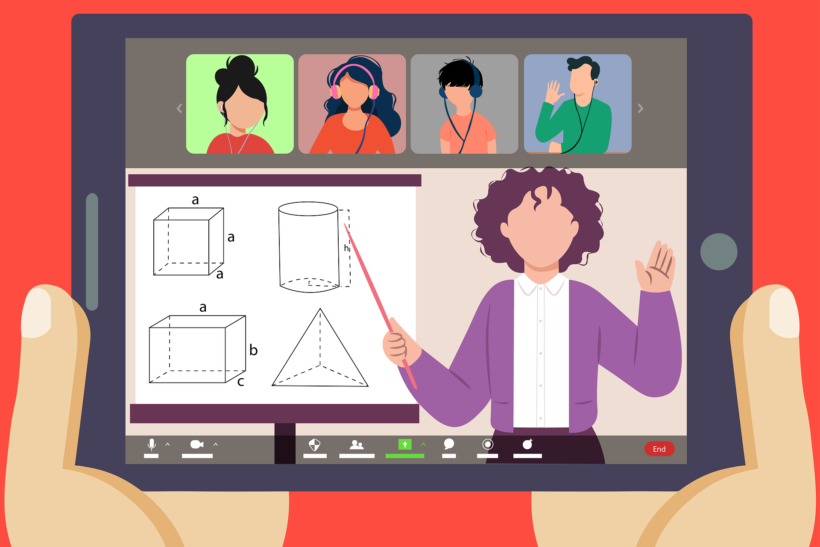
The newest class of WW Teaching Fellows was named in July of this year. Fellows began their master’s programs at Duquesne University, the University of Pennsylvania Graduate School of Education, and West Chester University over the summer.
Twenty-eight individuals make up the second cohort of the WW Teaching Fellowship program in the state. The highly competitive program recruits both recent graduates and career changers with strong backgrounds in science, technology, engineering, and math—the STEM fields—and prepares them specifically to teach in high-need secondary schools.
“Pennsylvania is committed to investing in science and technology education and ensuring every student has access to great STEM teachers,” said Pennsylvania Gov. Tom Wolf in the announcement of the new class. “Our schools need well-prepared teachers more than ever, as they and their students grapple not only with remote learning and new formats, but also with the need to continue preparing Pennsylvanians for high-growth fields that will help to strengthen our economy. The work these Fellows will do is critical.”
Fellows from the most recent class began their programs amidst the COVID-19 pandemic, while Fellows from the first class in Pennsylvania had to navigate their first year of teaching with the added layer of stress resulting from the virus. The upside for the first class of Fellows is they got a preview of teaching during a pandemic while still in their clinical placements at the end of the 2019-2020 school year.
For Kwesi Vincent, a Weiss WW Fellow at the University of Pennsylvania, having a mentor teacher to work through challenges with was crucial for his success when taking over the classroom: “[My mentor teacher] was very helpful at keeping me abreast of the best practices in distance learning as it pertained to math.”
But even with the extra practice of remote and distance learning, Mr. Vincent had to adjust his plans when school was back in session in the fall. “There’s nothing that can prepare you other than kind of being a first-year teacher and going through it there,” he said. “I had really grandiose visions of what I was going to do this school year. But the first time you realize that it’s just you and nobody else there, you realize very quickly that for your own wellbeing, you have to manage your expectations in terms of what you are signing yourself up for when you try to implement certain things that are great ideas.”
Even with constraints, Rachel Miller, a Fellow at Duquesne University, is using remote and hybrid teaching during the pandemic as a way to try different pedagogical approaches, such as community-based video and graphic tools. Some of her inspiration was drawn from her master’s degree coursework. “Throughout our time at Duquesne, we had a lot of online classes that we had to do at night or over the weekend,” said Ms. Miller. “Through those—maybe not intentionally—they gave us these ideas to use things like Flipgrid or Padlet or different apps that we could incorporate into our new virtual classrooms.”
Ms. Miller also thinks that the shift to virtual schooling during her clinical placement gave her a leg up for her first-year teaching. “I feel like I might be more prepared for this than some of our veteran teachers,” she said. “I’ve had experiences with making a lot of the resources, whether it was files or activities, and then uploading them, grading them, giving feedback online, creating the videos and creating audio for students as additional support. I’ve done that and I’m getting better at it. And I get to practice it more now.”
Each WW Pennsylvania Teaching Fellow receives $32,000 to complete a specially designed, cutting-edge master’s degree program based on a yearlong clinical experience—including schools’ current remote and virtual learning arrangements. In return, Fellows commit to teach for three years in high-need Pennsylvania schools. Throughout the three-year commitment as a teacher of record at a public school, Fellows receive ongoing support and mentoring.
“The WW Teaching Fellowship connects passionate STEM experts with the students who need them the most,” WW Foundation President Rajiv Vinnakota said. “Not only will the program prepare each Fellow to be an excellent educator, it will also give them the practice, support, and network of peers needed to succeed throughout their careers in the classroom. And for our university partners, the Fellowship supports their continued efforts to recruit, prepare, and mentor high-quality STEM teachers.”
To date, more than 1,200 teachers have been prepared through the WW Teaching Fellowship program. Pennsylvania joins Georgia, Indiana, Michigan, New Jersey, and Ohio as WW Teaching Fellowship states.
###
This story appeared in the fall/winter 202w issue of Fellowship, the newsletter of the Institute for Citizens & Scholars.
Fellows’ DYI Writing Group Provides Inspiration
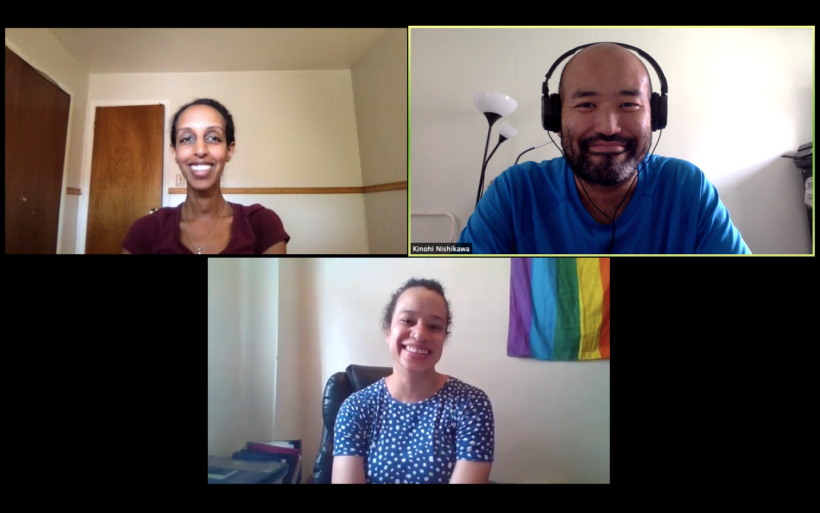
In 2015, three Career Enhancement Fellows—Dr. Kinohi Nishikawa, Dr. Carissa M. Harris, and Dr. Rebbeca Tesfai—met at the annual retreat. Out of that event, they created a writing group that has given them mutual support through each of their tenure processes.
Kinohi recalls, “The Retreat was such an affirming experience that three of us based in Philadelphia decided to check in with each other about our writing goals and writing progress on a weekly basis.” More than just a writing group, however, the connection quickly became a source of encouragement and a reminder of the importance of self-care.
Carissa describes the group’s process, which stems from a weekly Monday check-in on goals that also serves as an inspirational boost: “Even if we don’t manage to meet the week’s goals due to teaching, service, or life stuff, it’s still nice to check in,” she says, “and we’re able to remind each other of the importance of taking breaks and restoration.” The group also gathers once a month to circulate a piece of work in progress, catch up, and share feedback.
For Rebbeca, part of the writing group’s value comes from the perspectives of supportive scholars outside of her field: “Although my work is quite different from that of Carissa and Kinohi,” she reports, “I find that the comments I get on my work—and the chance to read things completely outside of my field—have made me a better writer.” Carissa echoes this insight, noting that “[i]t has been so helpful to have support, feedback, and perspective from outside my immediate subfield,” and urges other Fellows to take advantage of similar opportunities.
Earning Tenure
Since the three Fellows met, the writing group has become an anchor through a series of personal and professional changes. Kinohi reports, “The three of us have earned tenure and gone through a host of life changes: from giving birth to two beautiful boys (Carissa) to buying a home (me) to helping a parent move to the city (Rebbeca). It’s been incredibly rewarding to have gone through all of this in the company of two colleagues who have become dear friends. Our group has made securing that major achievement of tenure even more worthwhile.”
The purpose and content of the group has also evolved as the Fellows’ careers have progressed. Rebbeca says, “We’ve always discussed our current writing projects, but over time we’ve also shared advice and suggestions for the tenure process and academia more broadly.” Carissa adds, “We’re all working on our second book projects now (and in Rebbeca’s case, a new phase of articles and research questions), so we’re figuring out that process together, since we’ve moved beyond the research we completed for the Ph.D.”
Advice for Fellows
With tenure now behind them, these Fellows have a few more pieces of advice for current and recent Career Enhancement Fellows. “Having to produce a piece of writing every month for workshopping kept me consistently productive and enabled me to refrain from panicking as the tenure deadline drew closer,” Carissa says. “It’s also useful to share strategies for building the tenure portfolio and to celebrate one another’s progress through the tenure process during the tenure year.”
Rebbeca stresses the importance of connections: “While the sabbatical itself is important, the relationships you form during the fellowship are really vital. My first suggestion is to make sure that the mentor you choose will have/make the time to work with you during your fellowship period. My mentor… was generous with his time and his advice. My second suggestion,” she adds, “is to find a writing group. I was lucky enough to find one through the Fellowship, but the most important thing is to find a group of people whom you can work with and who (preferably) are local. During the Fellowship, the writing group helped me structure my time. Since then, it has become one of the best things to come from the Fellowship experience.”
Meet the Fellows: 2019 Newcombe Fellow Tom Gilbert
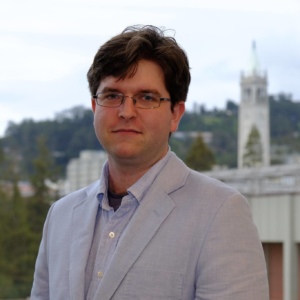 The Charlotte W. Newcombe Doctoral Dissertation Fellowship is the nation’s largest and most prestigious award for Ph.D. candidates in the humanities and social sciences addressing questions of ethical and religious values. The 2019 class of Fellows includes Tom Gilbert, a doctoral candidate in interdisciplinary field studies and rhetoric at the University of California, Berkeley. Tom traces his thinking on his topic:
The Charlotte W. Newcombe Doctoral Dissertation Fellowship is the nation’s largest and most prestigious award for Ph.D. candidates in the humanities and social sciences addressing questions of ethical and religious values. The 2019 class of Fellows includes Tom Gilbert, a doctoral candidate in interdisciplinary field studies and rhetoric at the University of California, Berkeley. Tom traces his thinking on his topic:
I remember doing a jig, at age 16 or 17, with my pet turkey Starbuck one day after chores were done. He was a big bird, at least twenty pounds, and had a habit of gobbling when my father backed up the family truck to the barn to unload chicken feed or hay for our sheep flock. His eyes were black and unreflective, and I remember his paroxysmal, sneeze-like gobble, though that day our dance steps were in sync at least, as he courted Pequod, our pet turkey hen.
At that age, my daydreams were my reality. I named my favorite roosters after characters in The Brothers Karamazov, my turkeys after Moby-Dick. As my interests matured through college and two years in Europe studying Kierkegaard and Kant, I came to Berkeley to pursue graduate work in sociology. The one constant of my work has been the makeup of the self, how that makeup is in some way a product of history and the social ties and ideas one is seized by.
Artificial intelligence was always interesting to me, but it was not until graduate school that I began to appreciate it as a window for understanding the self. Like a whale, to take “intelligence” out of its natural environment (the world) and into an artificial setting is on some level to misunderstand and destroy it. Yet humans are artificial too: we invent tools and domesticate animals in order to lift ourselves out of the natural order and into some higher plane where agency, and thus ethics, becomes possible. To become aligned with one’s surroundings and be recognized by other beings is one of the self’s highest callings. Rather than facing the prospect of artificial intelligence with fear and anxiety, can we treat it as a mirror for our own nature?
Tom’s dissertation, titled From Automation to Autonomy: The Moral Psychology of Human-Compatible Artificial Intelligence, examines the moral foundations and ethical stakes of autonomous artificial intelligence, in particular automated vehicle applications. For more information on the 2019 Newcombe Fellows, click here.
WW EVP/COO in The Chronicle of Higher Education
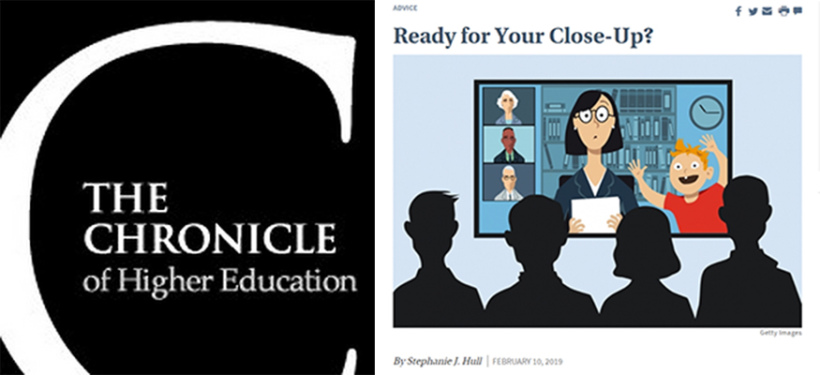
People in the professional and academic space are well acquainted with videoconferencing. From FaceTime to Skype, video communications have become one more way to converse with each other. It also prevents an equitable and accessible method for interviewing, says WW Executive Vice President and Chief Operating Officer Stephanie J. Hull in The Chronicle of Higher Education.
And yet sometimes, at the moments when we most want to present ourselves well, video can trip us up. Dr. Hull gives readers some tips for putting the best face on a video interview:
“Make sure your basic technology works well. Test it with one person and with a group of friends or colleagues. Is it better to use the computer audio or your phone? (Pro tip: Using both, on purpose or not, causes terrible feedback.) Do you know where all the buttons are — so you can mute and unmute, start and stop video, leave the meeting, change the screen view, use the chat function, and so on? Should you use headphones? With or without a mic? Establish your comfort zone in advance. If you know your Wi-Fi sometimes hiccups, ask for a phone number you can call should that happen.”
Read the other tips and full article here.
Goizueta-WW Enrichment Microgrant Symposium
Founded in 2015, the Goizueta-WW Enrichment Microgrants Program allows WW Georgia Teaching Fellows to apply for small amounts of funding to attend or present at professional conferences, purchase materials for their classrooms, or complete community-based service learning projects. Over the years, the program has allowed metro Atlanta teachers to create community gardens and drone clubs, purchase classroom sets of circuit boards and scientific probesets, and attend science conferences in Los Angeles and math conferences in St. Louis.
Here are photos and video of some of this year’s projects. You can also read about past projects here and here.
These types of opportunities benefit not only the teachers and students of those who get funding, but extend their reach to other teachers, schools, and whole communities. Each year, WW Teaching Fellows who participate in the enrichment program present their projects to their peers, sharing ideas and getting feedback on how to improve and expand their impact. Above is a selection of photos from this year’s symposium.
From the Newsletter: Mission to Diversify the Teaching Population
Mission to Diversify the Teaching Population: Blake Nathan’s TF ’12 Educate ME Foundation
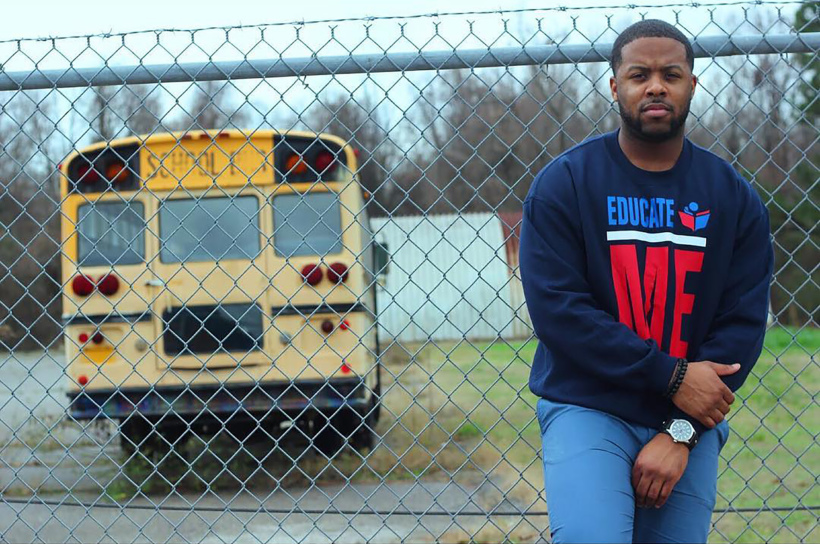
It was 2015. Blake Nathan TF ’12 was in just his second year of teaching at an Indianapolis middle school, fresh from Harvard’s Urban Principal National Leadership Institute, and working towards a second master’s degree in Education Leadership from Indiana University–Purdue University Indianapolis (IUPUI). As if that weren’t enough, he decided he would also launch a non-profit, the Educate ME Foundation.
“I had a full plate,” admits Mr. Nathan. “But it was also a benefit for me. Going through grad school and being a classroom teacher, there was no better evidence that backs up and supports my stance for diversifying the teaching population in schools nationwide because I was living and breathing it.”
Educate ME’s mission is to increase the number of men and women of color in the field of education. Educate ME provides mentorship opportunities, introductions to the field of teaching, recruitment efforts, as well as support and resources for those pursuing and in the profession.
During his first two years teaching eighth grade, Mr. Nathan was the only male teacher of color in his building. Despite having grown up in a predominantly African-American community in East Atlanta and having attended Tennessee State University, an HBCU, as an undergraduate, he only encountered a handful of teachers or professors of color.
“I can’t allow the next wave of eighth graders coming through not to see either a positive male role model or some teacher that understands some of the things they’re going through,” says Mr. Nathan. “Not just someone who understands in an empathetic way, but someone who can truly feel it and know what it is like because they’ve probably had similar experiences.”
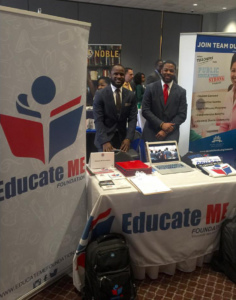
Educate ME’s work has expanded significantly over the past three years. At the outset Mr. Nathan focused on mentoring high school students interested in teaching, coaching them during their pursuit of a bachelor’s degree and licensure. Now the focus is on helping college-age students secure jobs after graduation. The organization has partner schools, hosts recruiting and job fairs, and facilitates conversations with current and prospective teachers.
Indeed, Educate ME is “constantly evolving,” says Mr. Nathan. “After going through two recruiting seasons of recruiting teachers for our partner schools, now we have to enhance our services by adding a technology tool to help us manage our onboarding and the hiring process for schools and teacher talent.”
The need for more teachers of color, especially in majority minority communities, is an issue that has captured national attention. But, in a crowded field of educational and other causes that need funding, how does Mr. Nathan make Educate ME stand out? “As a young founder of a non-profit, one of my biggest challenges is showcasing this need to the market and getting potential funders to understand that there is a value or cost associated with it,” he says. “A lot of people understand, ‘Yes, we need more teachers of color in the classroom,’ but is that something I’m going to invest in? Is that something we’re going to put dollars behind?”
As Mr. Nathan looks to grow Educate ME, he also keeps a foot planted in teaching as a practitioner. At IUPUI he teaches a course on integrating technology in the classroom and this summer, through Educate ME, will host a STEM Academy for middle schoolers.
Across all this work, Mr. Nathan draws on his experience as a Woodrow Wilson Teaching Fellow. He called on other Fellows, his professors, and his clinical and mentor teachers for data and feedback while developing Educate ME. He still taps these contacts when coming up with new ideas and initiatives, and the Fellowship itself continues to inform his work. “The Woodrow Wilson program is a model program,” he says. “I think it should be the national trend for how teachers are prepared.”
High-quality teachers of color can change the lives of their students. In a letter on Educate ME’s website, Mr. Nathan writes: “I firmly believe in the importance [of] role models of color … in shaping the trajectory of a student’s educational achievement as well as overall success in life. I believe we have the power to uplift communities of color across the nation and change the scope of education.”
###
This story appeared in the spring 2018 issue of Fellowship, the newsletter of the Woodrow Wilson Foundation. To see the full newsletter, click here.
From the Newsletter: “The Most Powerful Instrument in the World”
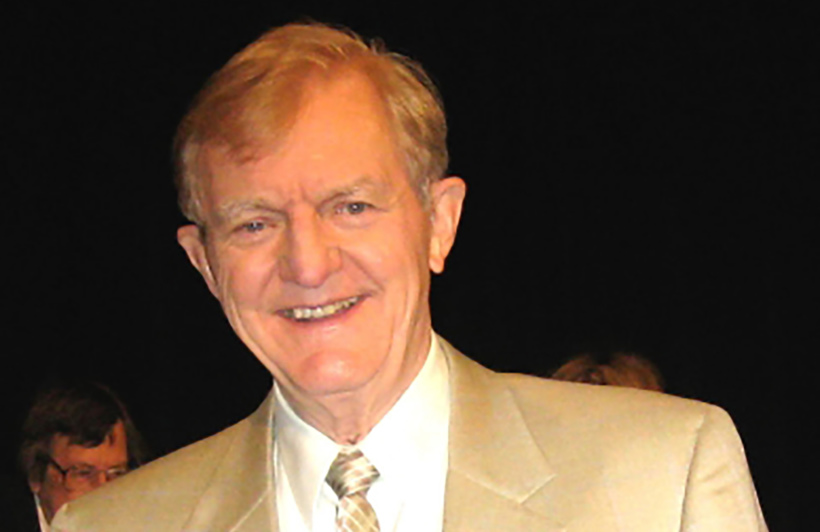
(Gordon Bower, professor emeritus of psychology/Courtesy Gordon Bower, Photographer: Sharon Ann Bower)
Gordon H. Bower WF ’54 on mind and memory
With a father who read the entirety of the Encyclopedia Britannica, a high school teacher who took an interest in his intellectual development over his pitching arm, and influential mentors throughout his graduate career, Dr. Gordon H. Bower WF ‘54 was primed early on not only to love to learn, but to love the very subject of learning.
Over the course of his 50-year career as a psychologist, Dr. Bower’s research has ranged over a variety of topics, most notably aspects of human memory. In particular, Dr. Bower’s research has elucidated the many ways that memory is influenced by the emotions that people are feeling at the moment. In 2002, the Review of General Psychology named Dr. Bower one of the most notable psychologists of the 20th century. In 2005, President George W. Bush awarded him the National Medal of Science for “his unparalleled contributions to cognitive and mathematical psychology, for his lucid analyses of memory and learning, and for his important service to psychology and to American science.”
This productive and prodigious career is thanks, in part, to a year Dr. Bower devoted to studying mathematics and philosophy of science at the University of Minnesota as a Woodrow Wilson Fellow.
“It was that year at Minnesota that got me perfectly set up for a graduate career and academic career that I subsequently had, including being an educator and professor of psychology at Stanford,” said Dr. Bower.
Out of high school, Dr. Bower turned down multiple offers to play professional baseball and attended Western Reserve University (now Case Western Reserve) on a baseball scholarship. His Fellowship year at Minnesota allowed him to explore further in the philosophy of science and higher mathematics, narrowing down his choice of graduate programs and professors.
He went on to Yale University to study the psychology of learning with Neal Miller, his lifelong mentor. After completing his Ph.D. in learning theory in 1959, Dr. Bower was hired in Stanford University’s Department of Psychology, where he would spend his entire career.
As an educator and professor, Dr. Bower spread his intellectual curiosity to his students and advisees.
“I used to hold group meetings at my research lab where we would have think sessions,” remembers Dr. Bower. Students would consider the latest research, and he would exhort them: “Think of some new way to go with our work, with your work, with my work. What’s next? How can we dig a little deeper?”
Dr. Bower has served as senior advisor for roughly 54 Ph.D. candidates and received numerous awards for his mentoring. He was a mentor to Stephen Kosslyn (p. 10) and many other notable psychologists. “I’m primarily interested in cloning myself and them becoming college professors in experimental psychology,” he admits.
“A good mentor provides students with the goals and motivation to carry on,” says Dr. Bower. “They say to themselves ‘I want to have good ideas like those my mentor has.’ Moreover, a good mentor serves as a discriminating reinforcement dispenser or critic of students’ work. Students learn to value that feedback and encouragement.”
Even today, as Stanford’s Albert Ray Lang Professor of Psychology, Emeritus, Dr. Bower seeks knowledge and explores his interests by attending classes with his wife on the Stanford campus.
“Being a Stanford professor for 50 years I got to know who were the really good lecturers,” he says. “So I could go to classes they were giving that had a big enough crowd that I wouldn’t stand out.”
While he was working, Dr. Bower would take classes like computer science, artificial intelligence, or other psychology classes. Now that he is retired, he explores interests outside his work, like literature and history. Recently, he and his wife have taken courses ranging from drama to politics, the Great Depression to the short stories of Chekhov.
By following his own sense of curiosity and encouraging students to ask big questions, Dr. Bower has helped to unlock the possibilities of memory and the mind, establishing himself as one of the most influential psychologists of his time.
“The mind is the most powerful instrument in the world,” Dr. Bower says in a video produced by the National Science and Technology Medals Foundation. “The mind generates our abilities and it drives what we are. It is the essence of our biography, it contains the processes by which we have evolved. … Learning and memory is central to the development of human powers.”
###
This story appeared in the fall/winter 2017 issue of Fellowship, the newsletter of the Woodrow Wilson Foundation. To see the full newsletter, click here.

